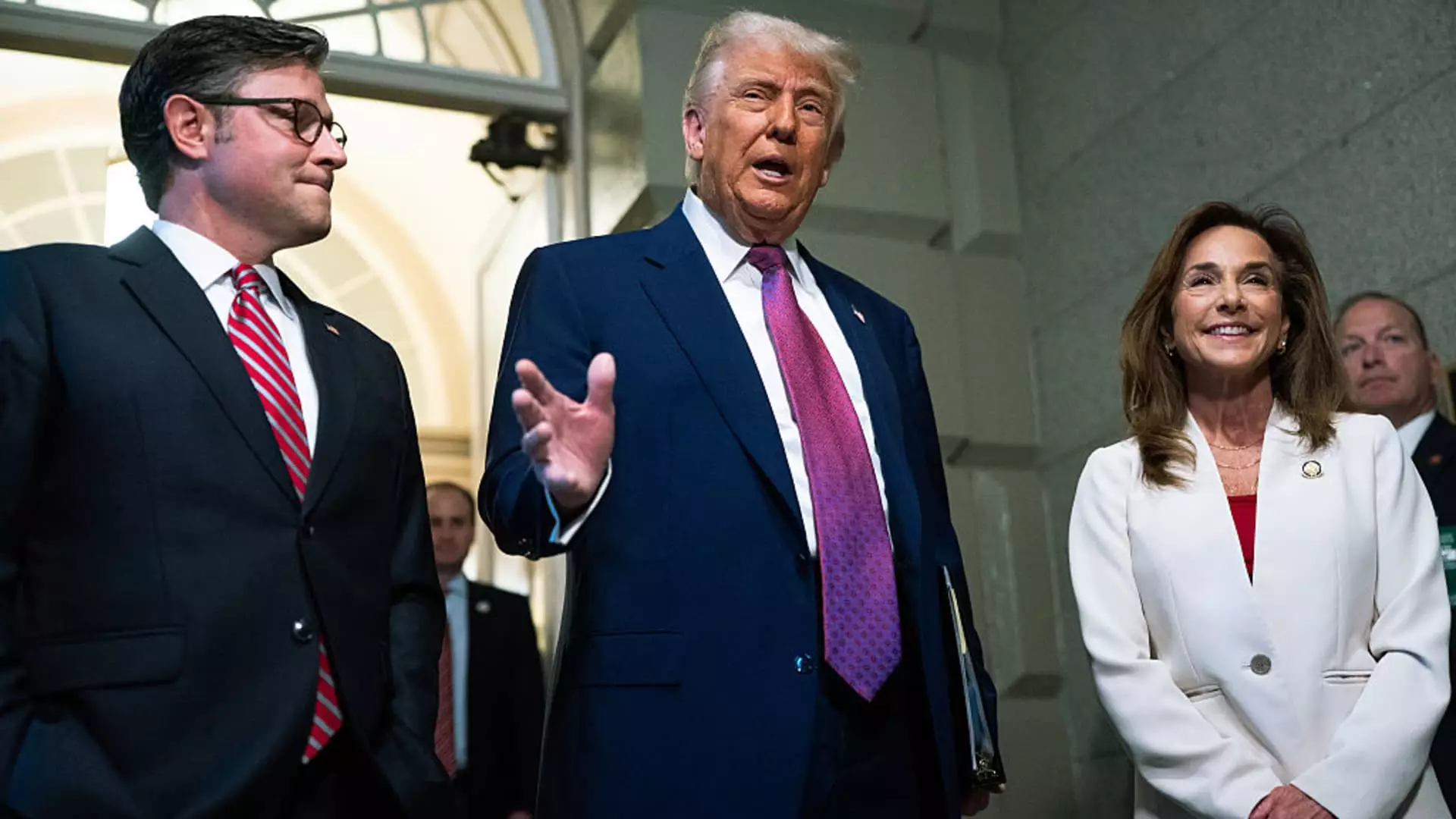In a highly contentious atmosphere, the U.S. House of Representatives narrowly passed President Trump’s ambitious tax bill early Thursday. This legislation, touted as “big and beautiful” by its proponents, showcases a hallmark of the GOP’s approach—not merely a strategy for economic growth but a minefield of contradictions that reveals a troubling tendency towards exacerbating income inequality. The vote resulted in a slim margin of 215-214, where every Democrat opposed it, alongside a handful of Republicans who broke ranks. This division is not merely political theater but a reflection of the underlying fractures within the party—fractures that cater more to the affluent than to the working-class constituents whom they profess to serve.
The Cost of Compromise
Throughout the prolonged creation of this legislation, Republican leaders aimed to appease both the hardline fiscal conservatives and the more centrist members of their party. However, this quest for a bipartisan facade resulted in a convoluted bill that, while packed with over 1,000 pages of text and amendments, serves primarily to fulfill party loyalty over pragmatic policy. This frantic push culminated in 21 hours of debates and adjustments to meet Speaker Mike Johnson’s self-imposed deadline—a clear indication of political expediency overshadowing thoughtful deliberation.
Yet, beneath the surface of this legislative win lies a troubling narrative. The fact that every Democrat voted against the bill, along with several Republican abstentions, indicates a significant lack of consensus about the direction of American fiscal policy. The GOP’s strategy appears to hinge on giving a semblance of unity while failing to embrace the broader economic ramifications. Promised cuts to social safety nets in tandem with tax reductions reveal a calculated gamble: perhaps the party believes that the allure of tax cuts can distract from the potential harms of dismantling vital social benefits.
The Economics of Inequality
A closer examination of the bill’s implications reveals a stark reality—that the intended beneficiaries of these tax breaks are often the wealthiest Americans. While the legislation puts forth a new cap on state and local tax (SALT) deductions that favors upper-income earners, estimates from the nonpartisan Congressional Budget Office paint a grim picture for those at the lower end of the economic spectrum. The unfortunate irony here is that households in the lowest decile will likely see a decrease in resources, while the wealthiest will revel in increased economic advantages.
Case in point: Republican lawmakers like Mike Lawler claim actions like increasing the SALT cap herald a vital economic boon for all. Yet, how can we reconcile this notion when empirical evidence suggests that wealth is being concentrated at the top? The markets’ negative reaction to the bill signals concern not merely about immediate fiscal impacts but also long-term consequences that could jeopardize fiscal stability—a precarious path indicative of misaligned priorities centering around tax breaks for the elite rather than tangible support for struggling families.
Complex Path Ahead
With the bill heading to the Senate, the complications are far from over. The GOP may have secured a victory in the House, but the upper chamber harbors its own dissent, with several senators expressing the need for significant modifications before granting their support. This reality underscores not merely a struggle for political domination but a chasm of ideologies within the party itself, revealing the challenges of navigating governance amid a sharply divided electorate.
As President Trump’s promised pen awaits, one can’t help but question whether this legislative agenda serves the greater good. How long can a strategy built on serving the wealthiest in society persist without igniting backlash from the very constituents they claim to represent? In this fracture of economic policy and partisan alignment, we can anticipate not just legislative gridlock, but an increasing disillusionment among voters who feel left out of a system that continues to reward the affluent while perpetuating cycles of inequality.
This debate over tax policy strikes at the very heart of American identity—should not a nation built on the principles of opportunity seek to lift all boats, rather than allowing a select few to sail effortlessly ahead? The challenges ahead are not merely legislative but moral, as this proposed legislation continues to test the enshrined values of fairness and equity in America.


Leave a Reply